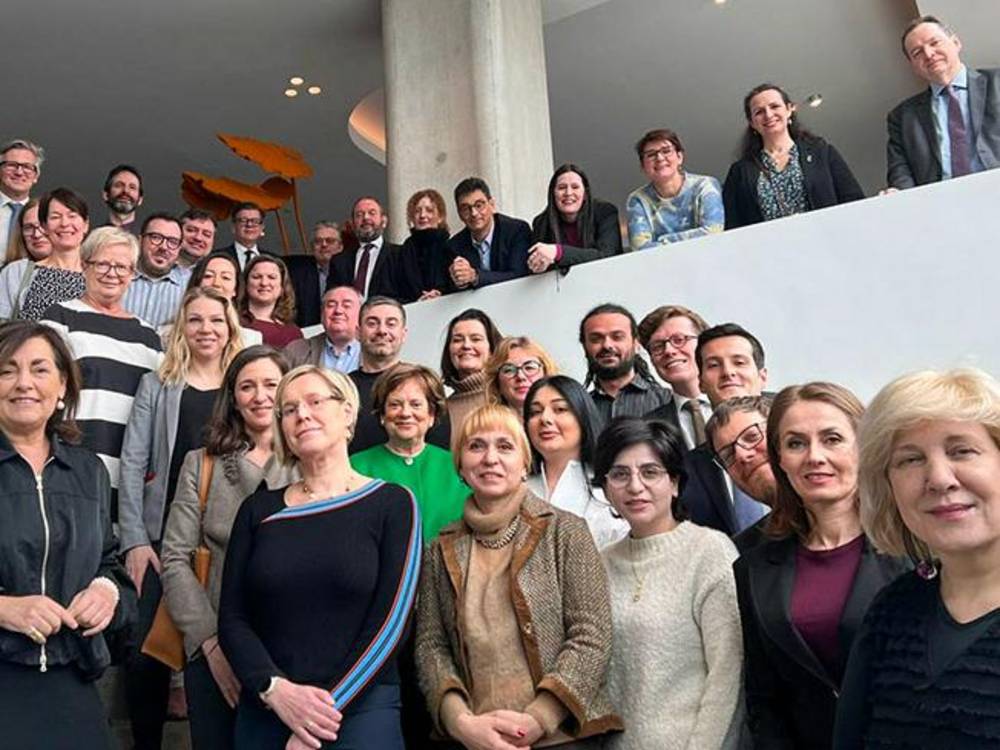The Human Rights Ombudsman Peter Svetina is in Amsterdam, the Netherlands, attending the exchange of views about artificial intelligence and human rights with the Council of Europe Human Rights Commissioner Dunja Mijatović. The Ombudsman adjudged the meeting especially important since the majority of attention directed at artificial intelligence is focused on its potential to support economic growth, while much less regard is devoted to the question of its influence on fundamental rights. “It is essential that the technological development of artificial intelligence be made in appropriate legal-ethical frameworks that will strengthen the existing levels of respect for human rights and fundamental freedoms of every individual and reinforce legitimate democratic processes,” assessed the Ombudsman.
“It is due to the dangers on one hand and positive potentials of artificial intelligence on the other that I as the Human Rights Ombudsman support the efforts to prepare a legal instrument of the Council of Europe on the development, design, and use of artificial intelligence that will be based on standards of the Council of Europe for human rights, democracy, and the rule of law,” said the Ombudsman. He added that the European Network of National Human Rights Institutions (ENNHRI), of which also the Slovenian institution of the Ombudsman is a member, also prepared its written positions on the draft of the Convention of the Council of Europe on artificial intelligence and comments related to the activities in the European Union. The ENNHRI network also accentuates the need for national supervisory bodies that will monitor the uniformity with the convention and prohibit practices representing unacceptable risk. Regardless of whether the national institutions are appointed supervisory bodies or not, ENNHRI calls for the mentioned convention to stipulate collaboration with them and other existing bodies for human rights. This includes their right to access information about how AI is used and data it gathers for the implementation of its tasks.
The Ombudsman informed those gathered at the meeting that the institution of the Ombudsman has been dealing with two cases touching the field of operation of bodies in the use of data technologies or artificial intelligence. He also presented both cases in detail; the first about the police use of data from passenger name records for the prevention, detection, investigation, and prosecution of terrorist and major criminal offences, and the second involving police use of computer technologies for face recognition. Even though the Ombudsman has not yet dealt with a case in which potential irregularities in the use of artificial intelligence for the needs of authorities would be confirmed, the institution is aware of the pitfalls of using artificial intelligence for human rights, and thus closely monitors the field.
The Ombudsman emphasises that the development of technologies demands that all who strive for the protection of human rights and freedoms have adequate and quality knowledge, “since we can protect people only if we are appropriately equipped with it, while at the same time we can transfer in interactions it to everyone who need it for these purposes. With knowledge and clearly set rules of the game it is possible to prevent consequences for people’s lives.” Human Rights Ombudsman Svetina also reminded the attendees about the necessity of inter-ministerial cooperation in individual countries and the international collaboration as well as the significance of the flow of information between policy-makers on the one hand and the community that develops and uses artificial intelligence on the other. He also warned about the responsibility of developed Western countries to help developing countries in the field of artificial intelligence “because otherwise the technological vacuum will be entered by countries and private companies that do not have respect for human rights in the development of artificial intelligence high on their priority list.”

![[Translate to English:] Varuh v Amsterdamu na posvetu o vplivu umetne inteligence na človekove pravice [Translate to English:] Varuh v Amsterdamu na posvetu o vplivu umetne inteligence na človekove pravice](/fileadmin/_processed_/4/a/csm_Amsterdam_umetna_inteligenca_statement-AI-and-human-rights-2023_49cbfd0416.jpg)